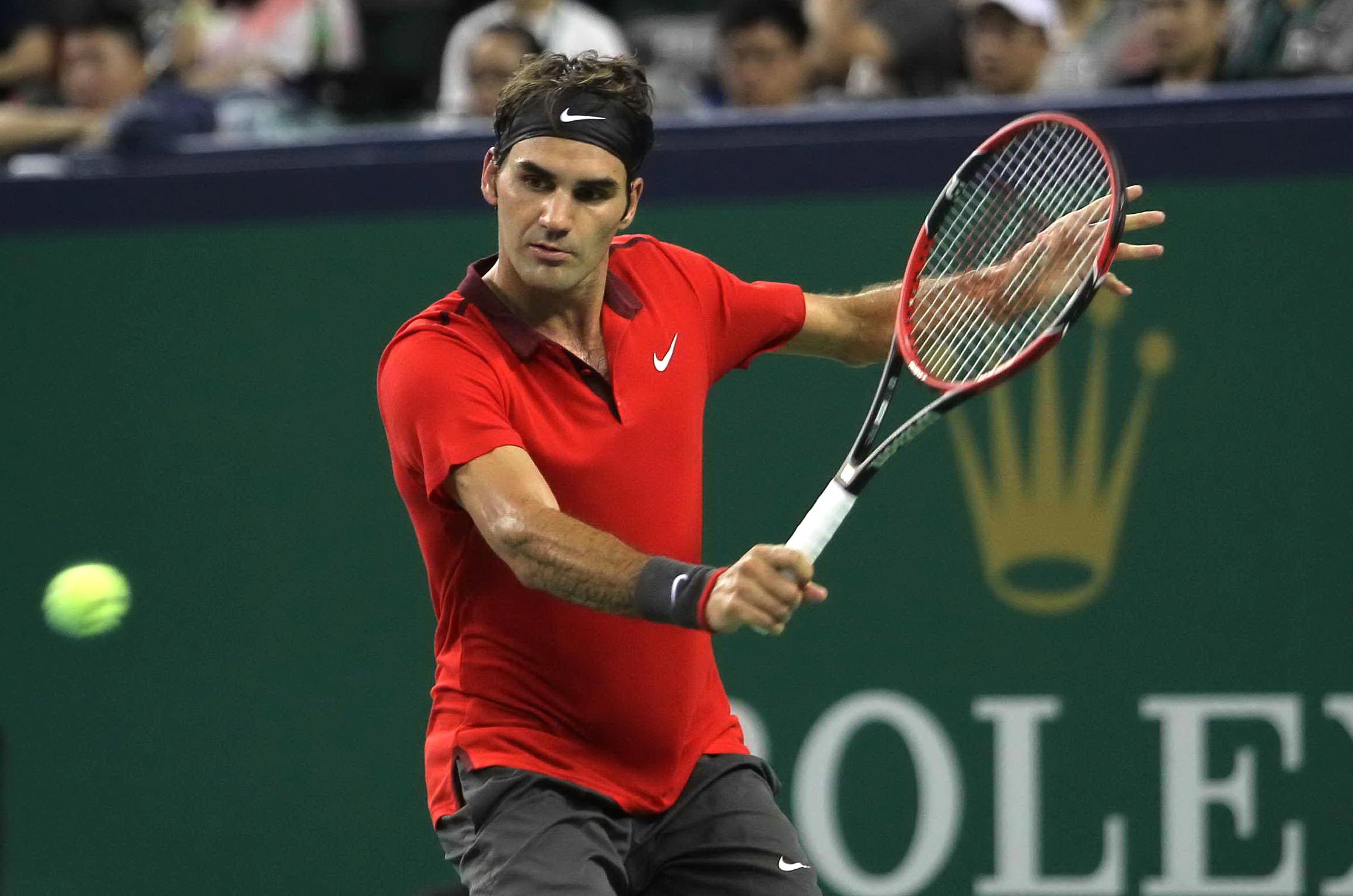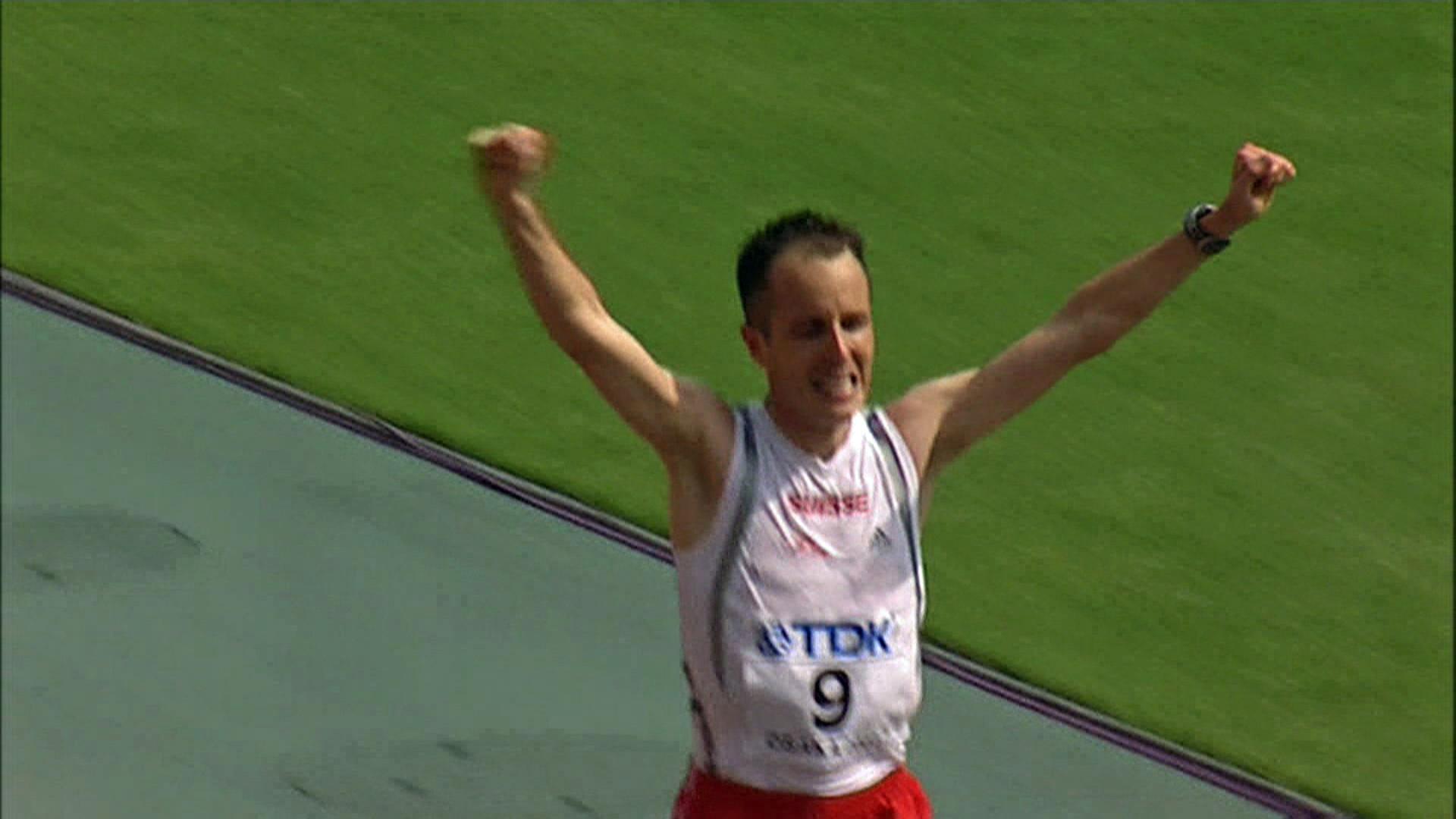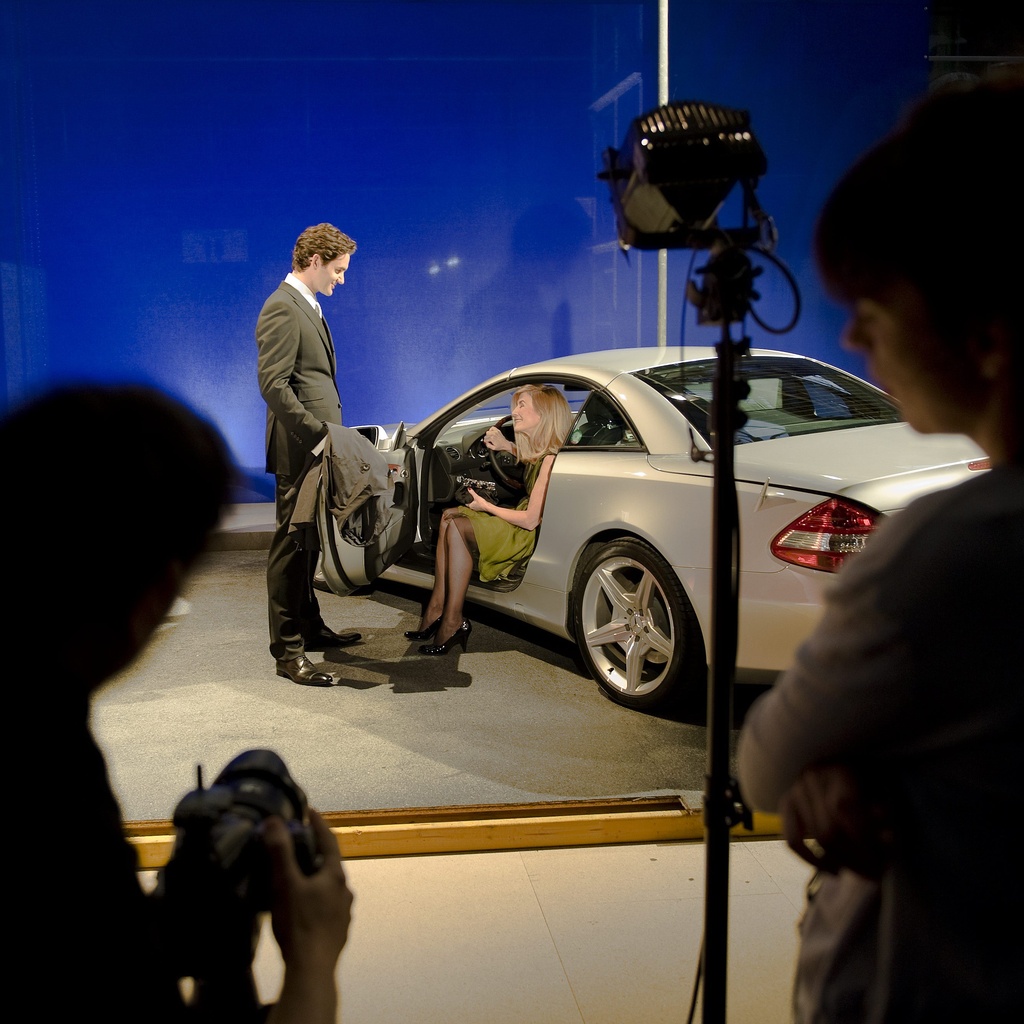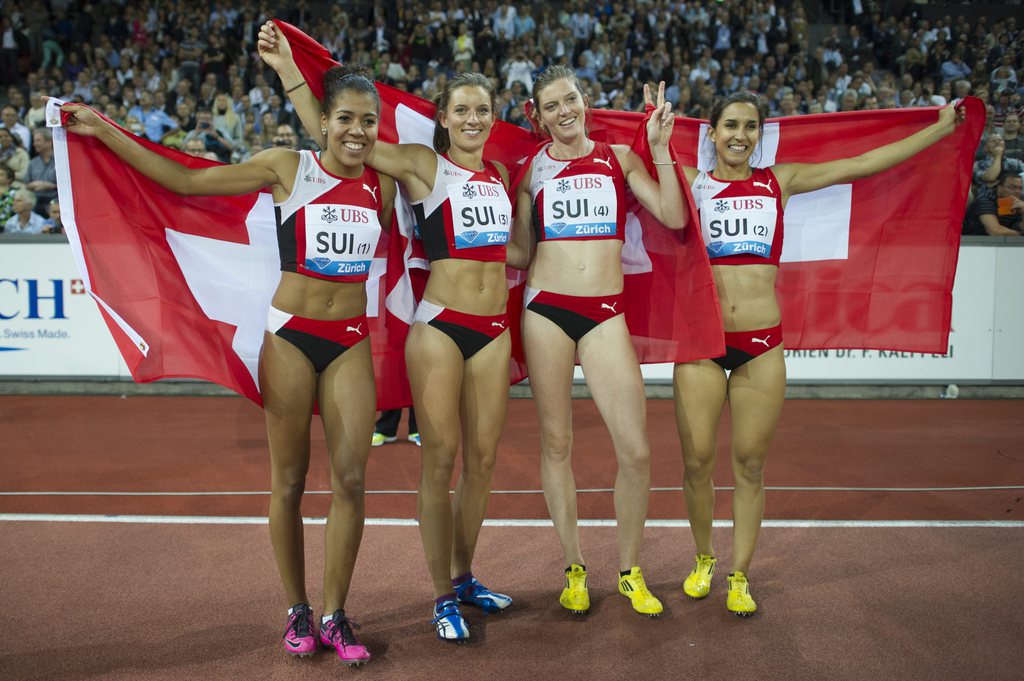No money in sport – unless you’re Federer

While Swiss tennis star Roger Federer earns millions a year, most Swiss athletes struggle to live on what they earn. There are moves afoot to boost sports funding, but some say it’s not the state’s job to support “hobbies”.
Forbes magazineExternal link says that 17-time Grand Slam winner Federer earned $56.2 million (CHF54 million) between June 2013 and June 2014, making him the highest paid player in tennis. Xherdan Shaqiri, the pint-sized footballer who made a splash at the World Cup in Brazil, reportedly earns €2.5million (CHF3 million) a year at Bayern MunichExternal link, one of Germany’s top clubs.
But the reality for most Swiss elite athletes is very different. Around half of them earn less than CHF14,000 ($14,000) a year; less than 100 can actually make a living from sport, according to a report,External link published in 2013, by the Swiss Federal institute of Sports Magglingen.
Parliament, pointing to sport’s ambassadorial role, wants to change this. At the end of September the House of RepresentativesExternal link voted to support a parliamentary intervention that would, for example, give elite athletes more recognition and allow them to better combine sports and studies. It follows hot on the heels of a call by the Swiss Olympic Association External linkfor an extra CHF30 million a year to maintain present sporting standards.
“We shouldn’t be dazzled by the incomes of Roger Federer and Xherdan Shaqiri. Most professional athletes live under the poverty line,” said the rightwing People’s Party parliamentarian Jürg Stahl during the debate. Many athletes have families; some have to take on part-time jobs.
State sport?
Cabinet has been mandated to come up with measures. It has responded that this could be covered by its national elite sports concept, currently being drawn up.
Not everyone – especially in Stahl’s own party – agrees with the intervention’s contents. “This sounds like a minimum wage initiative for elite athletes,” complained party colleague Peter Keller. “It’s not Swiss culture to establish state sport, like in China.”
It should be people’s own responsibility, he continued. “Should the state get involved when someone wants to make their hobby their profession?”
This attitude is not an unfamiliar one to Jörg Schild, president of Swiss Olympic and former national team handballer. “I have always detected, compared with other countries and from my own experience in elite sport, that competitive sport is not fully recognised in Swiss society,” he told swissinfo.ch.
Schild said he hoped the support for the parliamentary intervention would give cabinet the courage to boost sports financing through the national elite sports concept.
Currently Swiss Olympic receives on average around CHF38 million in funding, of which CHF25 million is from the Swiss lotteries, a bit more than CHF 10 million from the government, and CHF3 million from sponsoring.
Other countries such as Japan, Canada and Norway have invested heavily in sports, argues Schild. Switzerland should make sure it is not left behind.
Questions were raised at London 2012 Olympics over the Swiss team’s poor showing, although the winter athletes did better at Sochi 2014 (six gold medals).
The CHF30 million extra funding Swiss Olympic wants would not only be spent on the athletes but also, for example, on more coaches and providing free medical checks to athletes every two years, Schild said.
Role model function
Parliamentary intervention supporter Stahl, also a Swiss Olympic executive board member, argues that helping elite athletes is not state sport.
“There was a [long jump] world record holder from Cuba, Javier Sotomayor, who was a real export example for [Communist] Cuba and its ideas, and we don’t want that – I don’t want that,” Stahl told swissinfo.ch.
“[Support for sport] is about giving a certain security to a young person who chooses sport: provisions, insurance, an income that will take the pressure off the parents.”
Arts has state support and sport could also draw on this, he said. “It’s about elite athletes being ambassadors for the country and role models for young people.”
Athletes’ struggles
According to the Swiss Athletics Federation, only five to ten field and track athletes are making a living.
The recently retired Victor RöthlinExternal link, the most successful Swiss marathon runner of all time, has been one of them. But he said it was only after his first medal success, the bronze at the European Championships in Goteborg, Sweden, in 2006, that the sponsorship came rolling in. “Before that I had to fight my way through and I took all the risks,” he told swissinfo.ch.

More
Looking back at a running career
Another issue he encountered during his 15 year career – he ran his last marathon at the Zurich 2014 European Championships External linkon August 17, coming 5th – is lack of acceptance in Switzerland as a sports professional.
“When I told people, even after I won the medal, I’m a marathon runner they said, ‘ok fine but how do you earn your money?’ That’s maybe another thing to be worked on, that people understand that sports is a profession and not only a hobby,” he said.
On the prospects of more funding, he said Switzerland had to decide in which direction it wanted to go. “If it wants to have medals in the future and be a successful sports nation, then maybe it should think about everything: not only be there and support athletes when they win medals but also on the way there: in education and with money if they don’t have enough to live on.”
The winner of a gold at the Europeans in 2010 set up his own health and exercise promotion company in 2008, with an eye on the future. He now works for this full-time.
Crowdfunding
Other athletes have turned to more unconventional means. Mike Kurt, 34, a top canoeist, founded the crowdfunding platform I believe in youExternal link for sporting projects, after 20 years of battling to finance his sporting dreams. The idea, borrowed from the culture sector, allows for private funding to help an upcoming tennis player or with travel costs and kit for an international kitesurfing competition.
“In total more than half a million francs has been collected for 130 projects. This shows us that sport has a high status in Switzerland,” Kurt told the Tages-Anzeiger newspaper.
Nevertheless, Kurt still believes in more state financing. “There is a market failure for sports such as wrestling, fencing and canoeing. Here the government should intervene with support.”

In compliance with the JTI standards
More: SWI swissinfo.ch certified by the Journalism Trust Initiative












You can find an overview of ongoing debates with our journalists here . Please join us!
If you want to start a conversation about a topic raised in this article or want to report factual errors, email us at english@swissinfo.ch.